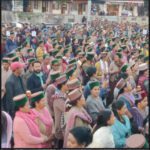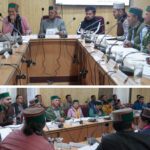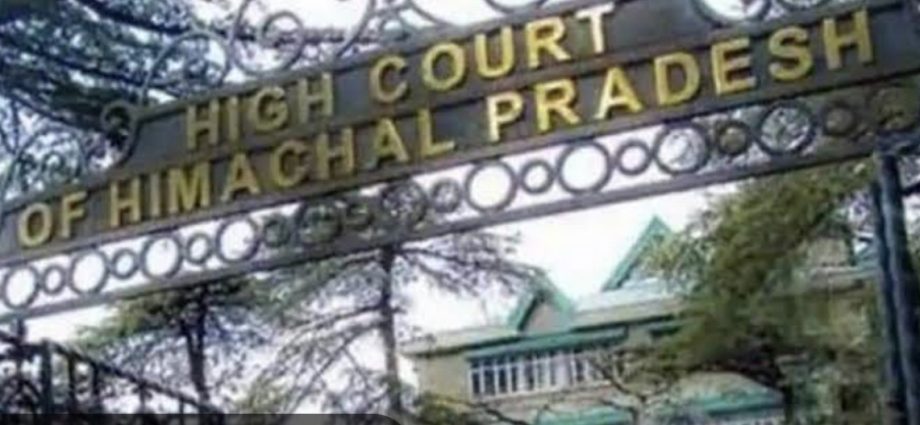IBEX NEWS,shimla.
The High Court of Himachal Pradesh, has quashed notification dated 16.8.2004, issued by the Govt. of Himachal Pradesh, prescribing condition of residence while offering public employment in tribal areas against Class-III and Class-IV posts. The Court found the notification contrary to the provisions of the Constitution of India.
Justice Sandeep Sharma, passed this order, on a petition filed by the petitioners, Surender Singh, Ramesh Kumar and Dalip Kumar.
Facts of the case are that the Deputy Director, Elementary Education, Reckong Peo, District Kinnaur, with a view to fill up the posts of Drawing Master, PET and Shastri, on batch wise basis sent call letters dated 14.10.2016, to the petitioners asking them to come for interview against the post(s) reserved for Scheduled Caste (Unreserved) in Kinnaur District. Though pursuant to aforesaid interview letters, petitioners appeared in the interview, but their candidature was not considered for appointment in light of instructions contained in notification dated 16.8.2004, issued by the Govt. of Himachal Pradesh, Department of Tribal Development.
The counsel for petitioner vehemently argued that instructions dated 16.8.2004, are not legally sustainable. If aforesaid instructions are permitted to sustain, this would amount to 100% reservation to the local population of District Kinnaur, which is not permissible under the law. He further argued that Parliament is only competent to make law, if any, with regard to requirement as to the residence within the state or Union Territory for public employment.
On the other hand Additional Advocate General, appearing for the State submitted that since petitioners are not local residents of the tribal District of Kinnaur, their candidature could not be considered in light of notification dated 16.8.2004 and as such, no illegality can be said to have been committed by denying appointment to the petitioners.
After hearing the counsels for the parties at length, the Court observed that it has been categorically prescribed in the provisions of law that there shall be equality of opportunity for all citizens in matters relating to employment or appointment to any office under the State. The constitutional provisions clearly suggests that only parliament can make law with regard to residence within state or UT. The Court found that the notification dated 16.8.2004, contains administrative instructions, which admittedly cannot override the constitutional provisions.
The Court allowed petitions and quashed and set aside the notification dated 16.8.2004, prescribing therein the condition of residence while offering public employment in tribal areas against Class-III and Class-IV, being contrary to the provisions of law. The Court directed the State Govt. to offer appointment to the petitioners against the posts in question from the due date, within eight weeks. However, the Court maintained that since petitioners had not worked against the posts in question from the due date, they cannot be held entitled to actual financial benefits, but definitely, they are entitled to seniority and notional pay fixation from the due date.
The Court further held that if need so arises, State is always at liberty to create supernumerary posts to safeguard the interest of private respondents, who were offered appointment and who were admittedly lower in merit at the time of interview held in the year, 2016, otherwise they will have to give way to the petitioners.


















